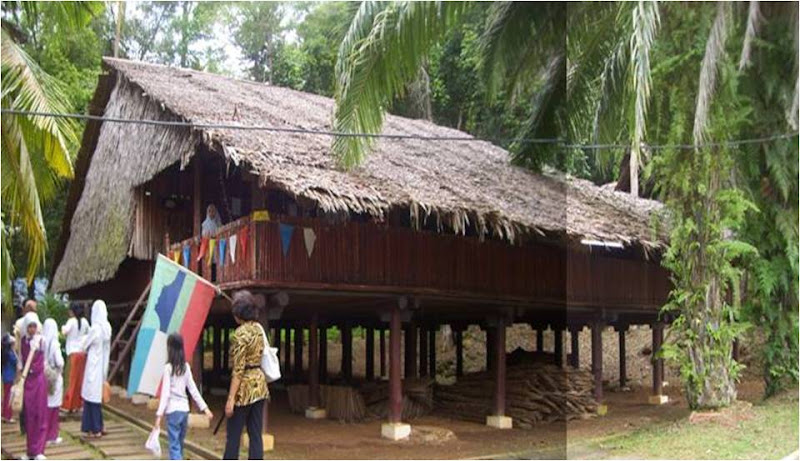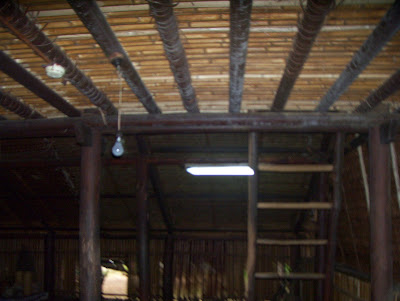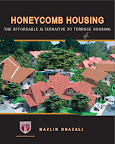
The long-houses that represent the Borneo states of Sabah and Sarawak in Mini-Malaysia in Melaka, stand out from the houses of Peninsula Malaysia. The long-houses represent an earlier version of life in a ‘kampong’ or village. The long-houses are multi-family houses that could make up a whole village unit.

The Kadazan - Dusun peoples that colonized what is now Sabah came before the iron age; cutting down the thick jungle would have been an immensely hard task; the humid forest was also very difficult to burn. So it is not surprising that they lived and worked together in multi-family groups. The jungle and the river provided enough for their sustenance; ‘slash- and-burn’ shifting agriculture had to wait for the ‘parang’ or machete. Sedentary agriculture came even later.

Bamboo for the walls and floors and rough hewn timber for the post and beam structure
Kadazans and Dusuns speak the same language but with differences in dialect. However, Kadazans are mainly found in lowlands farming paddy, while Dusuns are mainly based on the hilly jungles of the interior.

Atap roof, or Nipah palm leaf thatching
But not all Kadazans live long-houses. I think that this suggests that as technology advanced, it became less of a necessity to live in multi-family houses.
Did the early Malays of the Malay peninsula live in long-house too? Very likely, I think.
References:Related Posts: | Subscribe to Tessellar Blog and get a FREE E-Book  HONEYCOMB HOUSING An Affordable Alternative to Terrace Housing 17MB, 49 A4 pages, 57 illustrations |
Technorati Tags:Malaysian house, Early Malay Civilisation Sabah Long House,Kadazan Dusun House
1 comment:
yea..nice house,this trdistionl house in sabah.when i comeback frm singapore i got iea to mke this at morden house more.
Post a Comment